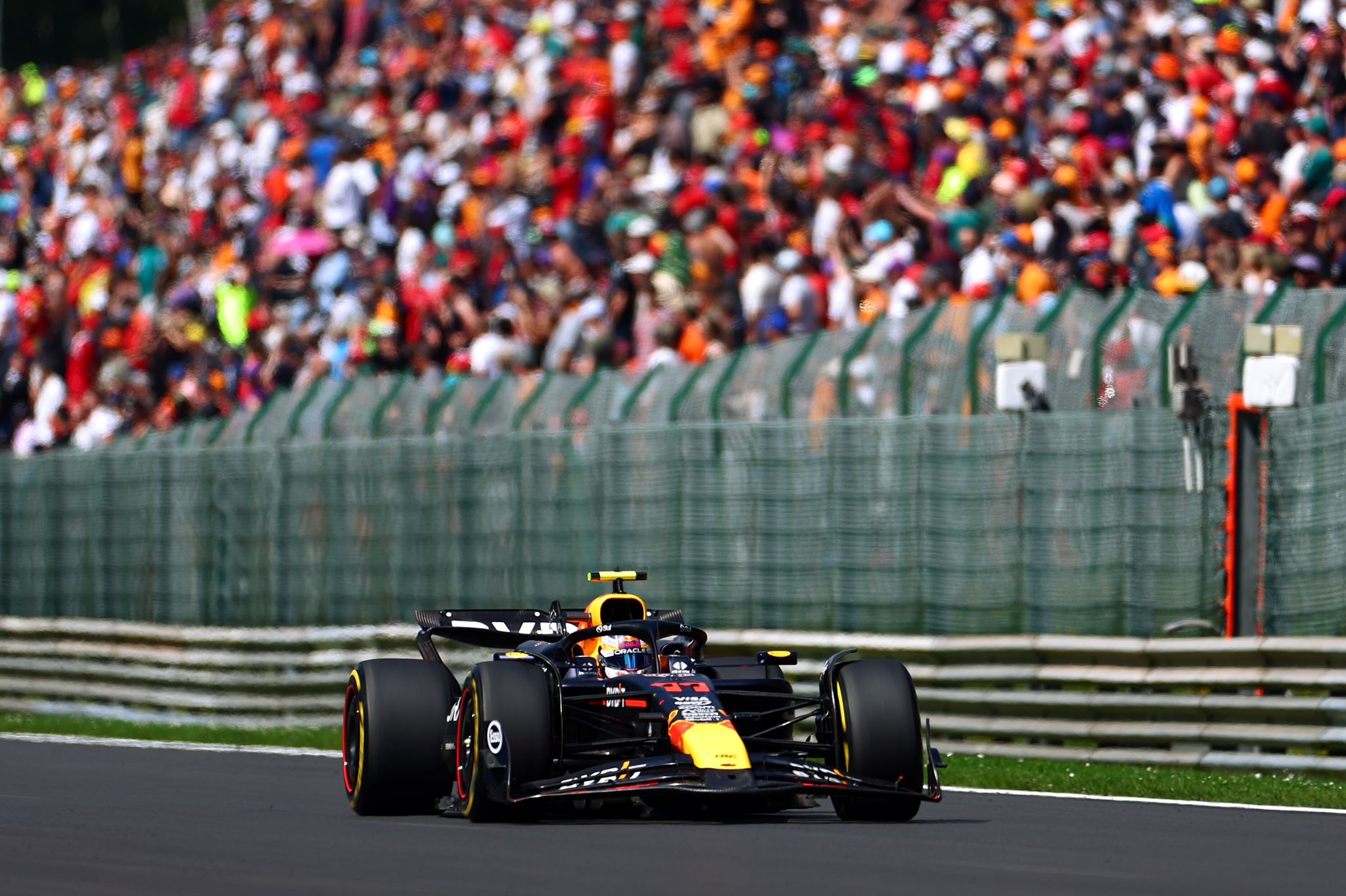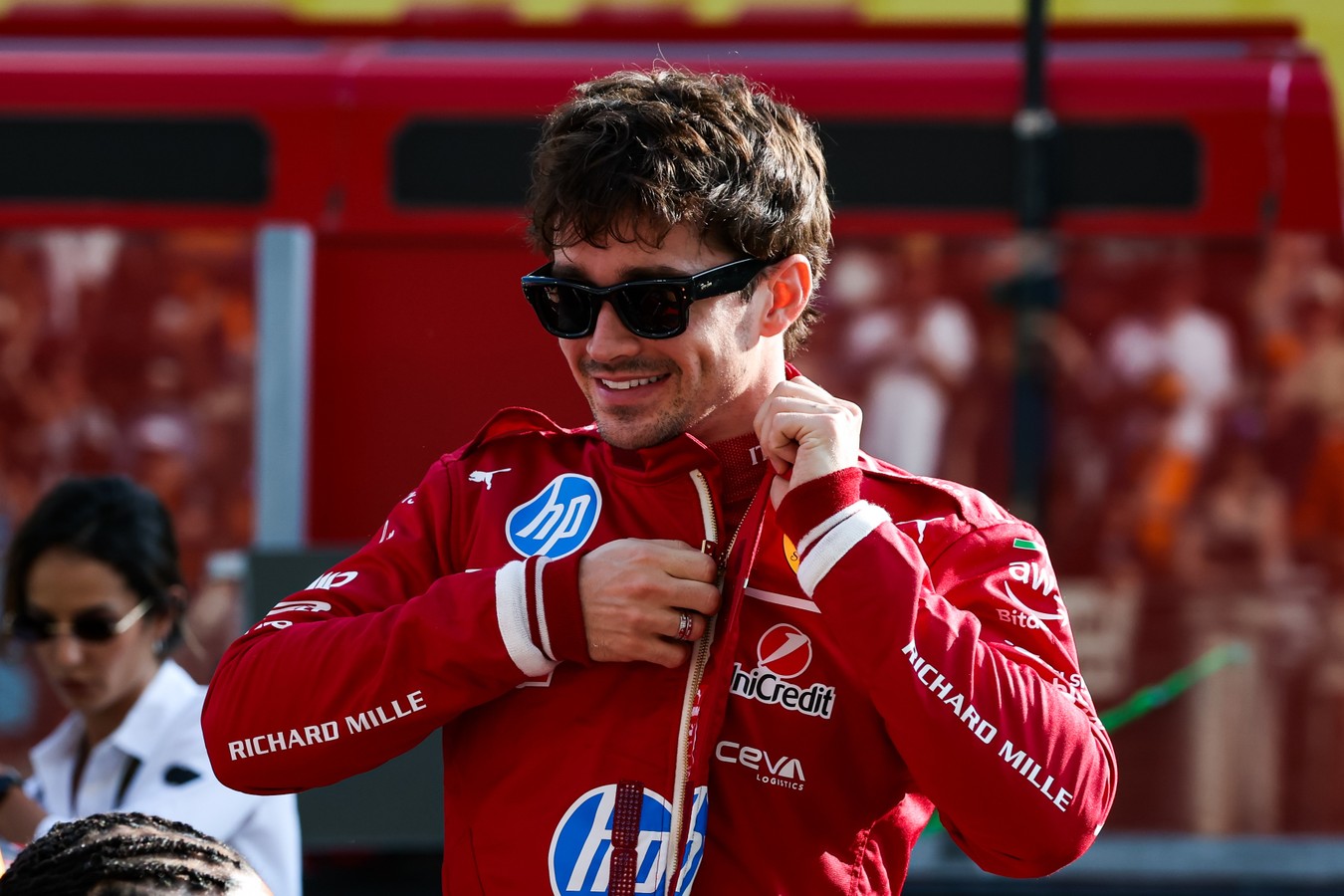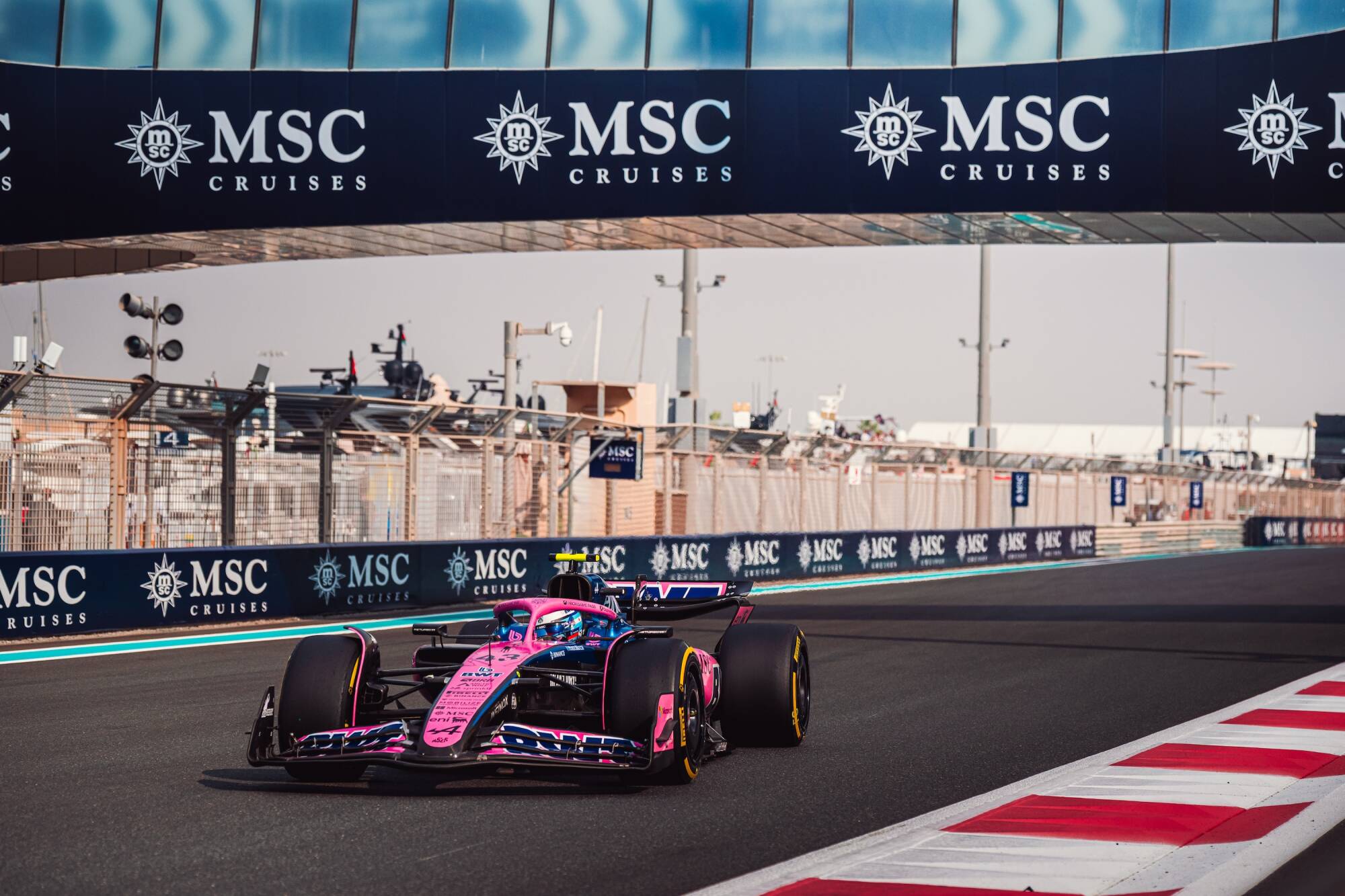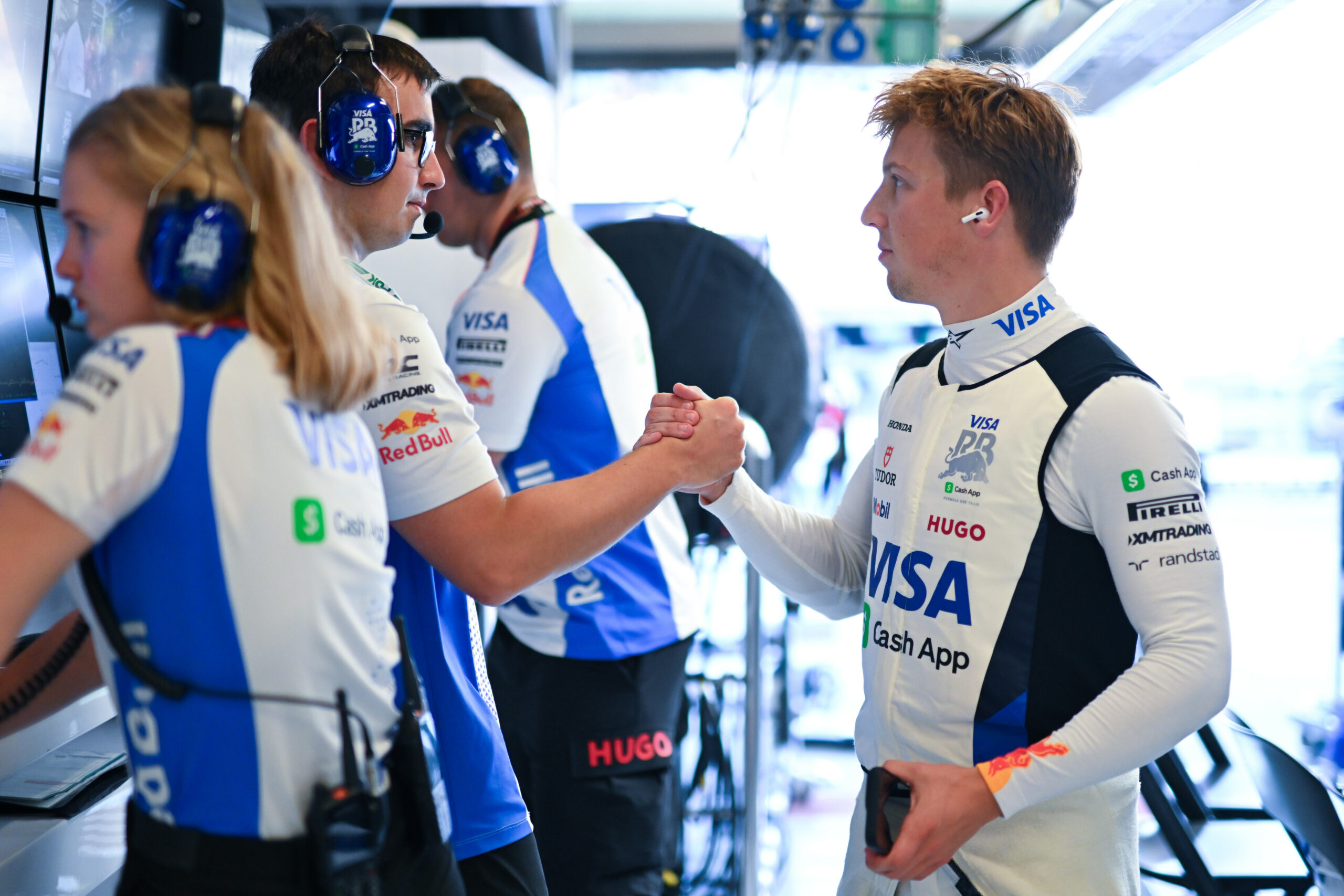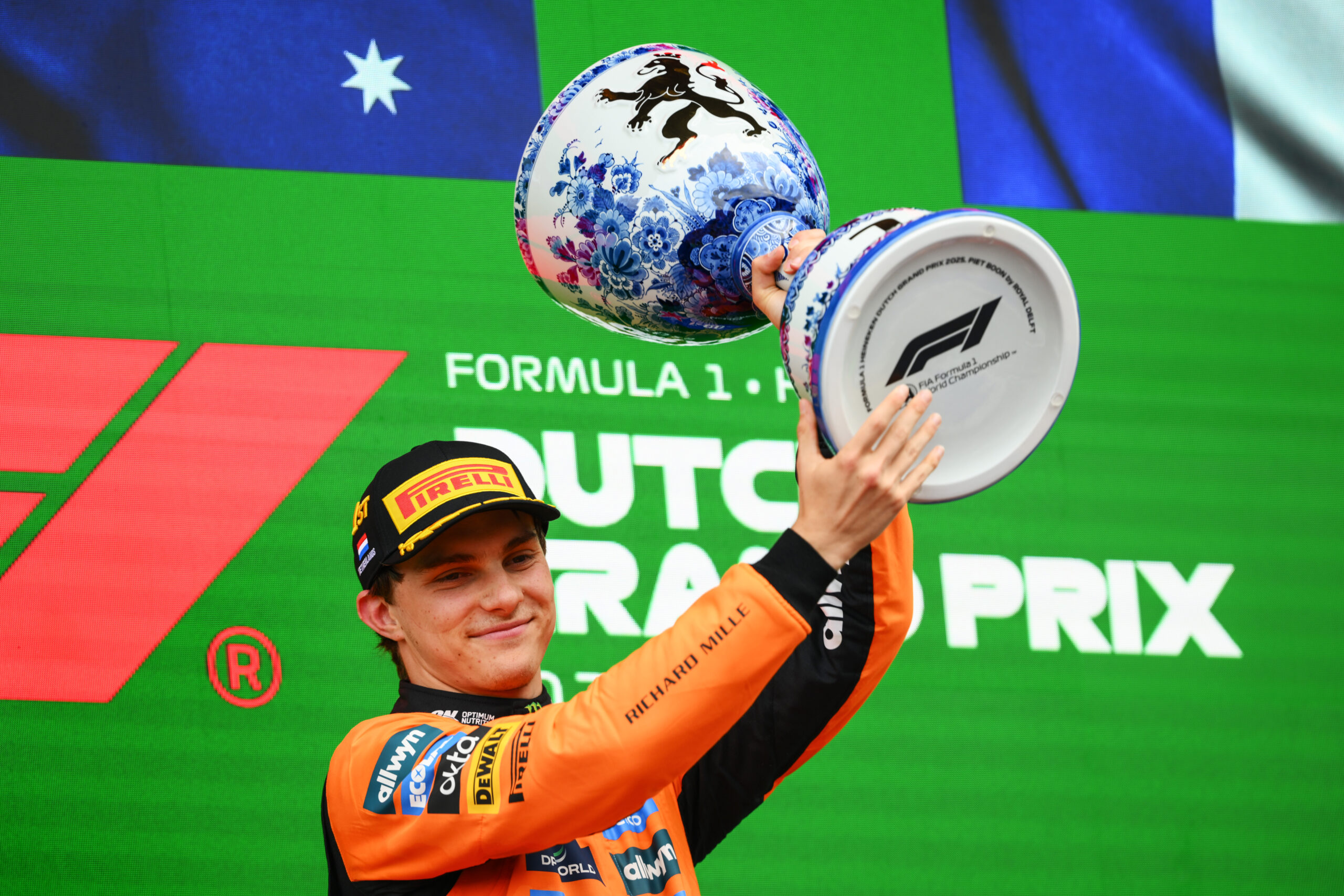The saga of Sergio Pérez’s tenure at Red Bull has taken yet another surprising turn, with the Mexican driver retaining his seat despite a series of dismal performances. The decision, influenced by external pressures from Formula 1’s commercial rights holders, Liberty Media, raises questions about whether Pérez truly deserves his place in one of the sport’s most coveted teams.
Red Bull team principal Christian Horner’s recent confirmation that Pérez will stay on for the remainder of the season came as a shock to many, including the Verstappen family. It seemed almost certain that Pérez’s days at Red Bull were numbered following his underwhelming performance at the Belgian Grand Prix. Rumours had even suggested that Max Verstappen would return after the summer break with a new teammate.
However, a dramatic reversal occurred after Liberty Media reportedly asked Red Bull to reconsider their decision. The reason? Pérez’s immense popularity in Mexico and the potential financial fallout from a diminished fan turnout at the Mexican Grand Prix.
This commercial angle, rather than a performance-based rationale, appears to have been the driving force behind Pérez’s unexpected stay. Liberty Media, the American media company that acquired Formula 1 in 2016, operates the commercial side of the sport. They focus on promoting the sport globally, increasing viewership, and maximising profits through media rights, sponsorships, and race promotions. This contrasts with the FIA, the governing body responsible for enforcing the rules and regulations of Formula 1. While the FIA focuses on the technical and sporting integrity of the sport, Liberty Media is driven by commercial interests.
Pérez’s performance this season has been anything but stellar. After a promising start, including four podium finishes in the first five races, his form has nosedived. Since signing a two-year contract extension in early June, Pérez’s results have been abysmal. His average points per race have dropped dramatically, and his gap to teammate Verstappen has widened significantly.
Pérez’s race performances illustrate his struggles vividly. At the Canadian Grand Prix, on a drying track, Pérez failed to find grip during Q1 and ultimately qualified a dismal 16th. His race day was equally disastrous, finishing 13th after a spin into a barrier caused race-ending damage to his rear wing. Helmut Marko, Red Bull advisor, attributed Pérez’s difficulties to psychological issues rather than technical shortcomings, stating, “It’s not the car, you can see that with Max… When the conditions change, he finds it much more difficult. But the fact that it’s already the third time [he’s missed Q3] is painful.”
At the Spanish Grand Prix, Pérez started from 11th after a grid penalty and finished eighth, almost a minute behind Verstappen. Horner emphasised the need for Pérez to be in the mix, saying, “We need Checo [Pérez] in the mix. He knows that and the team know that. If he’s on the back end of the top eight, you lose strategic options, whether you split your strategies and so on.”
The Austrian Grand Prix, held at Red Bull’s home circuit, should have been an opportunity for Pérez to regain confidence. Instead, he continued to underperform, finishing seventh in the sprint and eighth in the main race. Horner acknowledged the gap between Pérez and Verstappen, hinting at potential contractual consequences, “We’re doing our best to find out what is missing, because the first four or five races were very competitive and whatever has happened to cause him to drop off,” he said to Sky F1.
The British Grand Prix saw Pérez failing to progress beyond Q1 for the fourth time in 12 races. Starting from the pitlane after engine changes, Pérez finished 17th, marking another pointless weekend. Horner’s patience seemed to be wearing thin, remarking, “[Pérez] knows it’s unsustainable to not be scoring points – we have to be scoring points in that car, and he knows that.”
Hungary marked another low point as Pérez crashed in Q1, resulting in a 16th-place grid start. Despite recovering to finish sixth in the race, the damage to Red Bull’s constructors’ lead was evident, with McLaren scoring a dominant 1-2 victory. Horner noted the inconsistency, saying, “Yep, and that’s something that needs to change.”
Belgium, widely expected to be the decisive race for Pérez’s future, ended in disappointment. After qualifying third and starting on the front row due to Verstappen’s penalty, Pérez finished a distant seventh, showing no signs of the pace needed to challenge the front-runners.
Marko was blunt, while speaking to Sky Germany in his assessment, “Sergio had the opportunity to take a good result from second place. Unfortunately, that wasn’t the case. Especially in the last stint, he completely collapsed.”
Despite the dismal statistics and hostile comments from Red Bull’s management, Pérez has been given a reprieve. The intervention of Liberty Media adds a complex layer to the situation. The commercial imperative to maintain Pérez for the sake of the Mexican Grand Prix highlights a tension between sporting merit and financial considerations. While Pérez’s popularity in Mexico is undeniable, the question remains: should a driver’s seat at a top team be secured by commercial interests rather than performance?
Helmut Marko has been particularly vocal about Pérez’s issues, attributing them to psychological challenges rather than technical shortcomings. Despite occasional flashes of competence, such as his drive from 16th to 6th in Hungary, Pérez has largely failed to deliver consistent results. Horner’s public statements have alternated between support and veiled criticism.
While expressing confidence in Pérez’s ability to bounce back, Horner has also emphasised the sustainability of his current form. The team’s patience appears to be wearing thin, with Horner hinting that Pérez’s position could be risked if his performances do not improve. After the Belgian Grand Prix, Horner remarked, “We need both cars performing, which is what we had at the beginning of the year, and that’s where we need to get back to.”
Pérez’s case is a clear example of how modern Formula 1 is influenced by factors beyond the racetrack. The sport’s commercial stakeholders have significant sway, and their interests can sometimes override competitive integrity. This reality poses a dilemma for teams like Red Bull, who must balance the demands of their sponsors and owners with the pursuit of racing excellence.
As the season progresses, Pérez’s future at Red Bull remains uncertain. While he has been granted a reprieve, the pressure to perform will be immense. The upcoming races will be critical for Pérez to prove that he can return to his early season form and contribute meaningfully to the team’s objectives. Moreover, Red Bull’s long-term plans seem fluid, with potential shuffling of driver line-ups for 2025. This uncertainty suggests that Pérez’s position is far from secure, and any further dip in form could lead to his replacement. Liberty Media’s influence may have saved Pérez’s seat for now, but the underlying issues with his performance must be addressed to justify his place on merit alone.
Sergio Pérez’s retention at Red Bull, raises significant questions about the criteria for securing a seat in a top Formula 1 team. While Pérez has shown he can compete at the highest level, his recent performances cast doubt on his current merit. As the season unfolds, it remains to be seen whether Pérez can justify his place at Red Bull through on-track results, or if his stay will continue to be underpinned by off-track influences.

